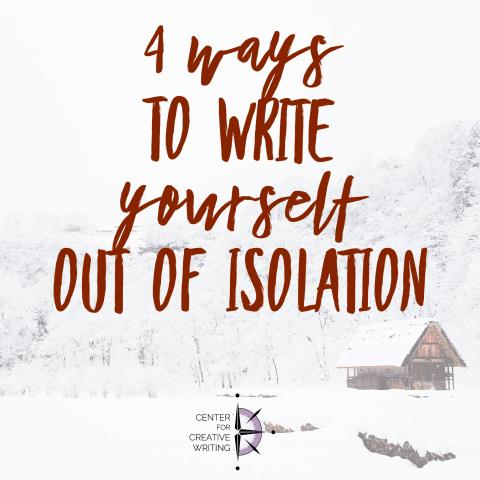
I turned my closet into an office and safe space at age eight. I needed a place to write. I knew that. The reason I wrote was to defy isolation.
The coronavirus quarantine and resulting inaccessibility of the outside world right now is reminding me of my earliest days with words, of being a frightened child in an abusive household. Writing was a friend I could turn to in a world that felt alien, and in which I perceived myself as unwelcome. Words were a way to create new worlds and to deal head-on—sometimes through all-caps, screaming scribbles, and heated underlines—with the world.
It might be a cliché, but writing back then was an escape. I reveled in it. I would like to revel in it now.
But writing now is different. It is far more difficult to form and release my thoughts—even angrily in a journal—while under quarantine during a global pandemic. How many friends have messaged me saying I must be so excited to have all this dedicated writing time? For many working writers, the pressure to write and write well is higher than it has ever been. If I don’t come out of this quarantine with a bestseller, what was I even doing? I ask myself regularly—especially given that my income sources are dried up for the foreseeable future.
The root of this insecurity is the notion that I should be writing to make money. I should be investing in words during quarantine. That I should be producing. And if I’m not, I’m failing.
As if art is about money, when truthfully, its meaning is so much bigger.
Already I have seen blog posts and articles encouraging writers to wrestle first with the stress of global shut-down and the impact it is having on our mental health and home lives. I agree. We do need to give ourselves a break when it comes to expectations. We need to take time for adjustment. Being kind to ourselves may mean we look at our writing differently.
Instead of writing to bankroll my next quarantine, I am focusing on writing to keep the isolation at bay. This time around, I do not have a closet or office space. I have a laptop, a couple of notebooks, some pens, and a dining room table. I am also not as afraid as I was as a child, but anxiety over what I cannot control flares unexpectedly. Sometimes I breathe through it. Sometimes I write.
What does writing to defy isolation look like? Whatever you want. If you are ready to try it, consider the following:
- Actualize with a list. Your mind is probably heaving with concerns. List them out. If seeing them in writing is too much, burn them.
- Grease the squeakiest wheel. What is the thought that won’t quit? The incessant, stressed out shout or whisper circling your mind? Capture its voice on the page while remembering the page allows for edits. On the page, you control it.
- Doodle. You can write without words. Sometimes thoughts just need to be heard. While you doodle, let your mind wander. Note any big or important thoughts. Witnessing a thought is often the best way to dispel it.
- Release expectations and aim big. Write that novel. Maybe this is the high pressure that yields your diamond. Write because you want to, not because it is expected.
Ultimately, your choice of writing may not make you feel less socially distanced (unless you start a group exchange) and help you mitigate the feelings of enforced isolation many of us are experiencing right now. But it may keep you writing, and therefore connected to an important part of your identity.
Are you writing during this period of uncertainty, social distancing, and/or quarantine? How is it going? Share with us in the comments!
Related reading: For those writing, or wanting to write, through this pandemic: We are here
Want to receive tips and inspiration like this in your inbox every Sunday morning? Join our email list community! You will receive weekly advice, a year’s worth of weekly writing prompts as a FREE download, and be eligible to participate in our monthly photo prompt contest for a chance to share an original piece of writing with our community of over 1,100 subscribers!
